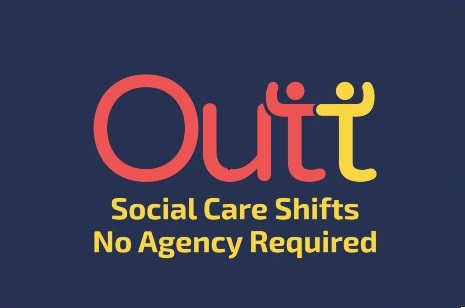SELF CARE WHEN WORKING IN SOCIAL CARE
working in social care, you dedicate your career to
looking after others and to improving their lives. This journey is rarely
linear, nor easy. As a result, many of us find ourselves in stressful
situations, working long hours and investing emotionally into our roles.
Working in any form of health and social care jobs
is demanding, and it is hard work. In order to remain a happy, healthy,
well-balanced individual (and therefore a brilliant career), you need to look
after yourself too! Self-care often gets ignored in those compassionate enough
to take up professions looking after others, but needs to be acknowledged and practiced
regularly.
STRESS AS A
RESULT OF WORKING IN SOCIAL CARE
Exhaustion and fatigue don’t just stem from physical stress.
Social care is often mentally and emotionally taxing – particularly when
dealing with difficult or upsetting situations.
In order to avoid burnout and illness, it’s imperative that
those working in social care look after their own mental and physical health as
well as those they’re working with in a professional capacity. This goes for
every type of support worker in every setting. Don’t assume that because a
stress or a strain is more mental than physical that it’s not as important: it
absolutely is.
HOW DO YOU
MANAGE SELF CARE?
So you work in social care and realize that you need to do a
little more to care for yourself. But where to start? Let us help guide you…
STAY
HEALTHY
Health often promotes happiness! Eat well and try to manage a
balanced diet (even around crazy shifts and schedules!), and try to exercise
when you can. This doesn’t necessarily need to be strenuous gym shifts or long
runs – particularly when you’re on night shifts or back-to-backs – but can be
walking in the fresh air or taking fifteen minutes to stretch out after a day
at work.
Exercise promotes serotonin, the ‘happy hormone’, so is great to
promote better wellbeing – and of course, keeps you healthier physically, too.
TAKE TIME
OUT AND TIME OFF
Social care is a sector in which it’s all too easy to get
totally wrapped up in your work. Ensure that you use your holiday allowances
fully, and use time off or away to completely remove yourself from your job.
Focus on you: you don’t need to travel anywhere exotic or indeed
travel at all, but you do need some time to do what you like, rest and recoup a
little.
KEEP
COMMUNICATIVE
It’s important that you talk through your stresses, and remain
open and honest through difficult or straining periods. This may be with your
friends, family, a therapist or colleagues.
Although this may not always feel natural – and indeed you’ll
probably have confidentiality clauses to remain mindful of – it’s critical that
others around you understand any burdens you’re under and how you’re coping
with them. There’s no shame in asking for help when you need it, and remaining
open-minded to that fact even when you don’t.
DO THINGS
YOU ENJOY!
Instagram would have you think that self-care is all bubble
baths and face masks, and it’s not just that… but that’s definitely part of it.
Do activities you enjoy – reading, walking, yoga, lounging in the bath,
watching Disney films, shopping, eating – whatever your ‘thing’ is, indulge in
it. Whilst realistically doing the things you love should never be just a
‘treat’, working life often makes it so.
Enjoy the time you have doing what you love and try to make time
for it whenever you can. It’ll boost your mood and give you a healthier
work/life balance. Win-win!
Registering with OUTT provides experienced social care
candidates the opportunity to build an employer review base and take full
control of where and when they work.
Read more:- https://outt.co.uk/social-care-news/self-care-when-working-in-social-care/




Comments
Post a Comment